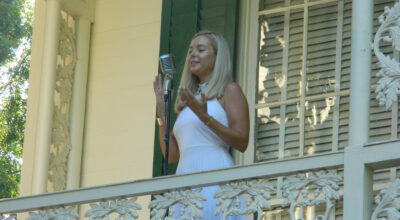Let’s talk about ‘Fair and Tender Ladies’?
Published 12:00 am Sunday, July 10, 2016
By Deirdre Parker Smith
deirdre.smith@salisburypost.com
SALISBURY — The second installment of the Summer Reading Challenge explores Lee Smith’s classic epistolary novel, “Fair and Tender Ladies” and its letter writer, Ivy Rowe.
Smith grew up in the coal town of Grundy, Va., in a dimestore owned by her father, hence the title of her new memoir, “Dimestore.” Unlike Ivy, she did got to college, where she met fellow writer Annie Dillard.
“Fair and Tender Ladies,” because it relies just on Ivy’s letters, leads to much reading between the lines as we presumptuously assume we know what happened. Ivy has a way of putting things just so.
Ivy’s mountain takes shape from her observations, from her place on Sugar Fork, looking down on Home Creek, a ways from the little town of Majestic, Va.
Because she is a mountain woman, time is almost irrelevant. Change comes very, very slowly. The letters start when Ivy is a girl, sometime before World War I, and continue through at least 1974, after the Vietnam War.
Ivy lives much of her life without running water, electricity, a car, a grocery store or formal schooling. But she lives every minute of that life. She’s bursting with ideas, curiosity, wonder and burning with love. She loves to read.
She loves to write letters. Readers will note how her spelling and word choice improve just enough through the years. She never learns to spell imagine — it’s always immagine, and for her, immagine is just fine, because she imagines a lot, likely twice what her brothers and sisters, children and grandchildren ever do.
“Fair and Tender Ladies” is about one woman, a force of nature, who survives tragedy after tragedy, who makes plenty of mistakes, who perseveres and raises generations of children, some not even related to her.
Ivy’s parents, Maude and John Arthur, start life together by running away, forsaking Maude’s entire family. They have many children and work a subsistence farm on the side of a mountain. When John Arthur gets sick, Maude and the children work the fields and do everything else it takes to survive.
Ivy, who likes to do what she wants, nevertheless is trusted with a great many things, including her sister Silvaney, who has fits of screaming and crying, wandering the mountain like a wild creature. Ivy writes, “Oh Silvaney Silvaney. She has that pale blue skin you know and them big blue eyes like lakes, and it is like, rigt undr ther is flames, flames. It is so scarry.”
So much happens. Ivy observes and writes. Most of the letters are never sent — they become like a diary.
Ivy is “ruint” when she falls for a young man at the boarding house where she and her mother work, giving birth to a girl. Once she is ruint, she seems glad to have gotten it over with, to be free of expectations and the plans others were making for her.
The beauty of this 1988 novel, perhaps Smith’s best, is how much happens within the lines of those letters. Ivy is what she is. She is lover, mother, caretaker, wife, all the traditional roles. She is outspoken, well read, insufficiently educated, naive, backwards, old-fashioned and tough as nails. Ivy is sweet like honey and tart like blackberries, soft and tender, hard and determined.
And we learn all this through her letters, not any one else’s observations, unless she mentions that in passing in her letters. We celebrate her successes, worry about her when she is in danger, cry with her when she’s grieving.
We understand how she falls in love, and how she holds on to love. We admire her for her tenacity and her spirit.
She is a pioneer and an inovater, she is out of touch and fully aware. She’s seen just about all of it, one way or another, seen men pulled dead from a coal mine, seen her own siblings killed or dying, she has gorged on life and love, and sometimes aches with hunger.
What can you learn from this book? How to live, how to die, how to keep on, no matter what.
You can learn how hardship is the only way for some people. You’ll see that money is not the answer. You might mourn the loss of simpler days, and notice how progress on the mountain is rougher than the old ways.
Tara McLellan Gilstrap is a visiting assistant professor of English at Catawba College, will lead the discussion of “Fair and Tender Ladies” on Tuesday at 7 p.m. at Rowan Public Library.
She is director of the writing center at Catawba College. She teaches composition, Southern literature and world literature. Tara is completing her dissertation work for a Ph.D. from the University of Mississippi.
She lives in Salisbury with her daughter, Geneva, and two cats and a dog, all named after famous American authors.



